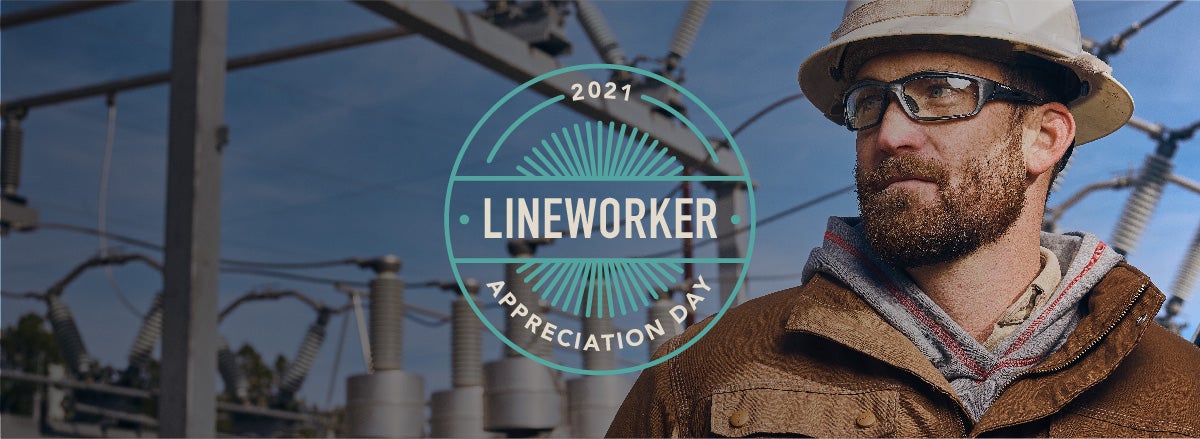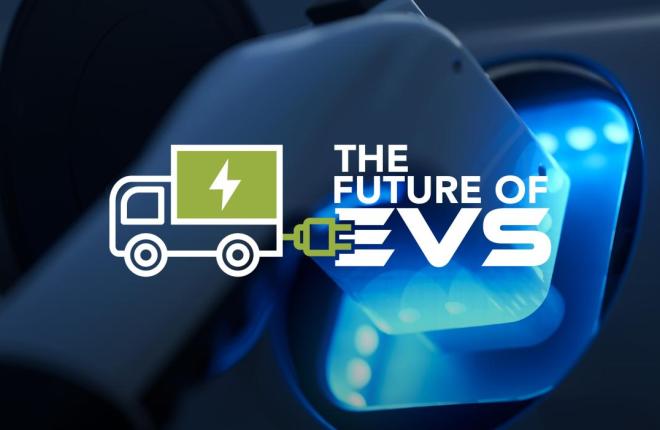
4/08/2021
Lineworker Appreciation Day 2021
Today, Tri-State is recognizing the brave men and women who have chosen a career field where their job is to ensure the reliability of the electric grid. These dedicated employees protect public safety, often as the first responders during storms and other catastrophic events such as wildfires, working to make the scene safe for other public safety professionals.
Our people may be called upon to work with thousands of volts of electricity 24 hours a day, 365 days a year, to keep electricity flowing. While many cooperative consumer-members regularly see our employees working across their communities, their safe work belies the work hazards they manage daily to deliver reliable power to homes and businesses.
Lineworker Appreciation Day gives us the opportunity to celebrate the everyday hard work, skill, and dedication of the people who make up Tri-State’s Transmission Maintenance staff, which includes over 240 lineworkers, substations, construction, and telecommunication technicians.
When you are in charge of keeping the power flowing, you are an essential service provider. Today, Tri-State recognizes the dedication of our lineworkers, and substations, and telecom techs. We acknowledge that their jobs sometimes take them away from their families on holidays and birthdays. Being on-call sometimes means braving the snowstorm, being out when others are asked to stay in, and working when you would rather be somewhere else. We want to say thank you to all of the Transmission Maintenance employees for that sacrifice and for keeping the lights on for our members.
Keeping the Lights On is a 24/7 Day Job
With over 5,600 miles of transmission line, 450 substations and 175 telecommunications sites across our members’ nearly 200,000 square miles of service territory – our employees are constantly buzzing with activity, so that whenever you flip the switch, electricity is there when you need it.
Each member of the team has a story to tell about some of the more challenging working conditions he or she has experienced, whether it be slick mud in the aftermath of a wet spring storm, deep snow while patrolling a remote mountain line, or spending the night in a substation control building. I am also confident that they will tell you about it enthusiastically; because that is the kind of person it takes to do this type of work.
Exciting Careers Powering the Gig Economy
If you think working for an electric cooperative is old school, think again. We power the technology that makes modern life possible, from sharing photos with grandma on Facebook to ordering a graduation gift for your daughter on Amazon.
Our high-voltage lines, fiber optic cable, circuit breakers, switches, transformers, and network of microwave, satellite, and mobile radio systems are the backbone to the data centers, Internet, and mobile connections behind the technology companies that power the digital economy.
And the electric grid is becoming increasingly high-tech too. Rapid increases in solar and wind generation are advancing smart grid technology that helps renewable energy move around the country in sophisticated real-time energy markets. Cleaner energy is driving demand for even more electric vehicles to hit the road in the coming decade.
To keep electricity flowing, the Internet humming, and mobile phones ringing, we need the next generation of utility professionals who can replace the workforce set to retire in the next five years.
Tri-State offers transmission and generation apprentice training programs in over 25 journeymen and tradesmen career tracks that provide a lifetime of challenge and opportunity. Apprenticeship requirements range by profession, including up to 2,300 hours of classroom instruction and over 6,000 hours of on-the-job training to complete the program.
Concern for Community: a Core Value
“Concern for Community” is one of the seven Cooperative Principles that guide the not-for-profit cooperative business model. Electric cooperatives, which were formed by their members, have a long history of supporting their communities in times of crisis.
“Our employees continue to do the hard work of ‘keeping the lights on’ while taking good care of each other and their communities.” -Duane Highley, Tri-State CEO
Tri-State is a power supply cooperative, operating on a not-for-profit basis, with 45 members, including 42 member utility electric distribution cooperatives and public power districts in four states, that together deliver reliable, affordable, and responsible power to more than a million electricity consumers across nearly 200,000 square miles of the West.
Highlighting The Amazing Work Behind Electricity Transmission
The following stories highlight the amazing work that is done behind the scenes in our electricity transmission teams.
Teamwork Drives Colorado Bomb Cyclone Response
March of 2019, March, the bomb cyclone spring storm impacted our transmission system and our members’ distribution systems across four states. Our team was prepared and engaged before, during, and after the storm to maintain the reliability of our electric service.
Highline Electric Association & Distribution Center Support During February 2021 Cold Weather
The inherent advantages of the U.S. electric cooperative model have been known for decades. During the Feb. 13-18 Arctic cold wave that affected most of the nation, however, the Highline Electric Association in Holyoke, Colo., took the principles of cooperation among cooperatives and concern for the community to new levels.
Montrose-Nucla-Cahone Transmission Project Beyond the Numbers
https://tristate.coop/Montrose-Nucla-Cahone-Transmission-Project
Even by the standards of other major utility construction projects across the nation, the numbers behind Tri-State’s recently completed, 230-kilovolt Montrose-Nucla-Cahone (MNC) transmission project are staggering. Throw in a worldwide pandemic during the construction phase, and we have a real story to tell.
Tri-State's Montrose Maintenance Center Helps Out Neighbor
https://tristate.coop/tri-states-montrose-maintenance-center-helps-out-neighbor
Tri-State Technician Chris Depuy at the Montrose Maintenance Center has been involved in regional first responder activities for several years. Chris is also a volunteer with the Montrose Sheriff’s Posse and keeps up with the latest issues involving the county. Those relationships came in handy in mid-January when the Hinsdale County communications tower located on top of Hill 71, a 12,305-foot mountain went dark.
--
About Tri-State
Tri-State is a power supply cooperative, operating on a not-for-profit basis, serving electric distribution cooperatives and public power district member-owners in four states. Together with our members, we deliver reliable, affordable and responsible power to more than a million electricity consumers across nearly 200,000 square miles of the West. Visit www.tristate.coop.
Blog Posts

The Future of EVs: Air, Water, and Land

Benefits of Installing an Attic Fan for Summer

How to Prepare Your Home for a Summer Heat Wave

E-Bike Friendly Trails in our Member Service Territories

Save Energy and Money This Summer with a Smart Thermostat

How to Electrify Your Outdoor Camping Adventures

Tips for Installing an EV Charging Station at Home

Summer Storm Safety Tips for Camping

